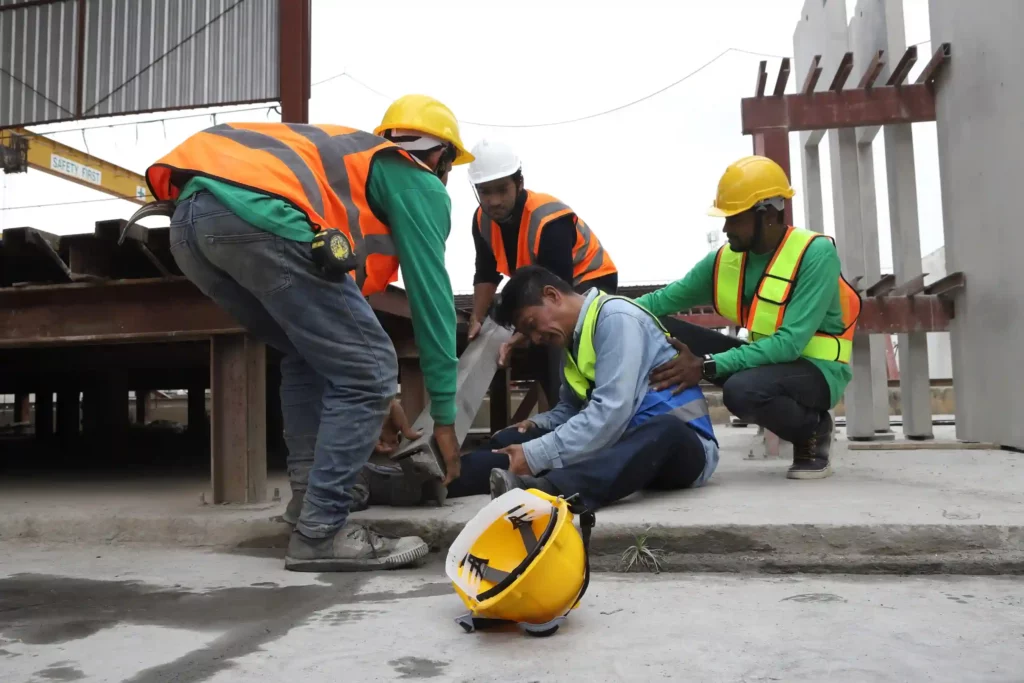Traumatic brain injuries are some of the most devastating consequences of accidents in Summerville, SC. The Brain Injury Association of South Carolina reports more than 700,000 traumatic brain injuries or strokes occur statewide annually. The long-term consequences of these injuries — including expensive medical bills and significant disabilities — leave many people with brain injuries in dire straits. Fortunately, a Summerville traumatic brain injury attorney from Murphy Crantford Meehan can help victims get the help they need after an accident.
If you sustained a traumatic brain injury in Summerville, Murphy Crantford Meehan can provide the comprehensive legal support you need. We can investigate the accident to uncover the liable parties, and we’ll document all your losses to maximize your claim’s value. Your initial consultation is free. You don’t owe us any attorney fees unless you recover compensation for your injuries. Call us personal injury lawyers today or complete our contact form to learn more.
Hiring a brain injury attorney in Summerville, SC, can make a huge difference in your case’s outcome. Brain injuries are complicated and often lead to significant medical costs, an extended recovery, and substantial lost income. An experienced Summerville traumatic brain injury lawyer can gather crucial evidence, consult medical professionals, and work with experts to understand the full impact of your injury. A brain injury lawyer can calculate the highest possible compensation by detailing your medical needs, future expenses, and personal suffering and pain.
One key reason to hire a traumatic brain attorney in Summerville is that handling insurance companies and opposing lawyers can be challenging, especially while you’re recovering. Insurance adjusters may downplay your injuries or offer a quick settlement that won’t cover your true expenses. A skilled attorney can negotiate on your behalf to help make sure you aren’t shortchanged. They can protect your rights, counter lowball offers, and explain when it’s in your interests to take a case to court.
Without legal guidance, you risk losing out on money you may need for ongoing care and other needs. Brain injuries often have long-term effects, from physical disabilities to cognitive impairments, affecting every aspect of life. So, failing to secure full compensation now could leave you financially vulnerable later. A knowledgeable attorney understands how to anticipate and address these unique needs, giving you the best chance at a fair outcome.

Contact us now
(843) 376-4030
Traumatic brain injuries in Summerville come in many forms. Some of the ways doctors classify brain injuries include:
A closed brain injury occurs when the brain sustains damage without any object penetrating the skull. Blunt force or rapid shaking can cause these injuries, affecting the brain’s function even without visible wounds.
These injuries happen when an object pierces the skull and brain tissue. Gunshots, shrapnel, or similar impacts cause penetrating injuries, often leading to severe, targeted brain damage.
There are also several kinds of closed brain injuries, such as:
Often the result of a sudden jolt, a concussion temporarily disrupts brain function, causing confusion, headaches, and dizziness. Repeated concussions may lead to chronic issues like memory problems or emotional instability.
A contusion is bruising of brain tissue, typically from a direct impact to the head. This bruising can cause swelling and increased pressure within the skull, potentially leading to more severe issues if left untreated.
A DAI is a severe injury resulting from the brain experiencing rapid shaking or rotational force, such as in a car accident. These brain injuries stretch or tear brain tissue, damaging nerve connections and affecting various cognitive functions. A DAI is often hard to detect but can lead to long-term cognitive or physical impairments.

These injuries occur when the brain strikes one side of the skull and then bounces back to hit the opposite side. Often the result of high-impact trauma, this dual-impact injury can damage multiple brain areas, leading to complex symptoms.
Blood clots that form outside or within the brain after impact are called hematomas. These clots can compress brain tissue and raise intracranial pressure, leading to serious complications like loss of consciousness or permanent neurological damage.

Traumatic brain injuries (TBIs) can happen in many everyday situations, often without warning. Here are some common causes and how they impact the brain:
Seeking immediate treatment is crucial to minimizing the effects of a traumatic brain injury. If you notice one or more of these TBI warning signs after an accident, see a doctor right away.


Immediately after a traumatic brain injury, medical teams focus on stabilizing the patient. Initial treatments often include imaging tests, such as CT scans, to assess the injury’s severity. Patients may receive oxygen and fluids to support brain function and prevent further damage. In cases of severe injury, surgery may be necessary to relieve pressure, remove blood clots, or repair fractures. Emergency treatment aims to reduce brain swelling and control bleeding to stabilize the patient as quickly as possible.
Long-term treatment options depend on the injury’s effects and the patient’s recovery progress. Rehabilitation is common and may include physical therapy to regain motor skills, occupational therapy for daily tasks, and speech therapy in some cases. Psychological support helps patients manage emotional changes, like mood swings or anxiety, resulting from brain trauma. Some patients may need medications to manage pain, prevent seizures, or treat depression.
In severe cases, people with brain injuries require long-term residential care in a nursing home or assisted living care facility. Consistent monitoring and tailored therapies help patients adapt and maximize their recovery over time.
Your compensation for a traumatic brain injury depends on many factors. For example, the higher your expected medical costs, the greater the value of your claim. With help from an experienced attorney, your compensation in a traumatic brain injury case could include money for:

Under South Carolina law, you usually have three years from when you sustained a brain injury to file a lawsuit. If you miss this deadline, you will most likely lose your chance to recover compensation for your losses.
Having said that, we recommend you speak to a traumatic brain injury attorney in Summerville as soon as possible. Crucial evidence can disappear or deteriorate within days or weeks of an accident, making it harder to build a strong case. Your attorney can start working on your case while you seek medical treatment. That way, you have the best possible chance of recovering maximum compensation.
Our South Carolina brain injury lawyers understand your struggle and can help you in your fight for fair compensation. Call Murphy Crantford Meehan today or complete our contact form for a free case evaluation. Our law firm, with our years of experience, can help you get the compensation you deserve.

Well-Respected





"*" indicates required fields

Murphy Crantford Meehan – striving to get justice for Our clients. we believe in a good and honest fight, and we will not stop at anything.